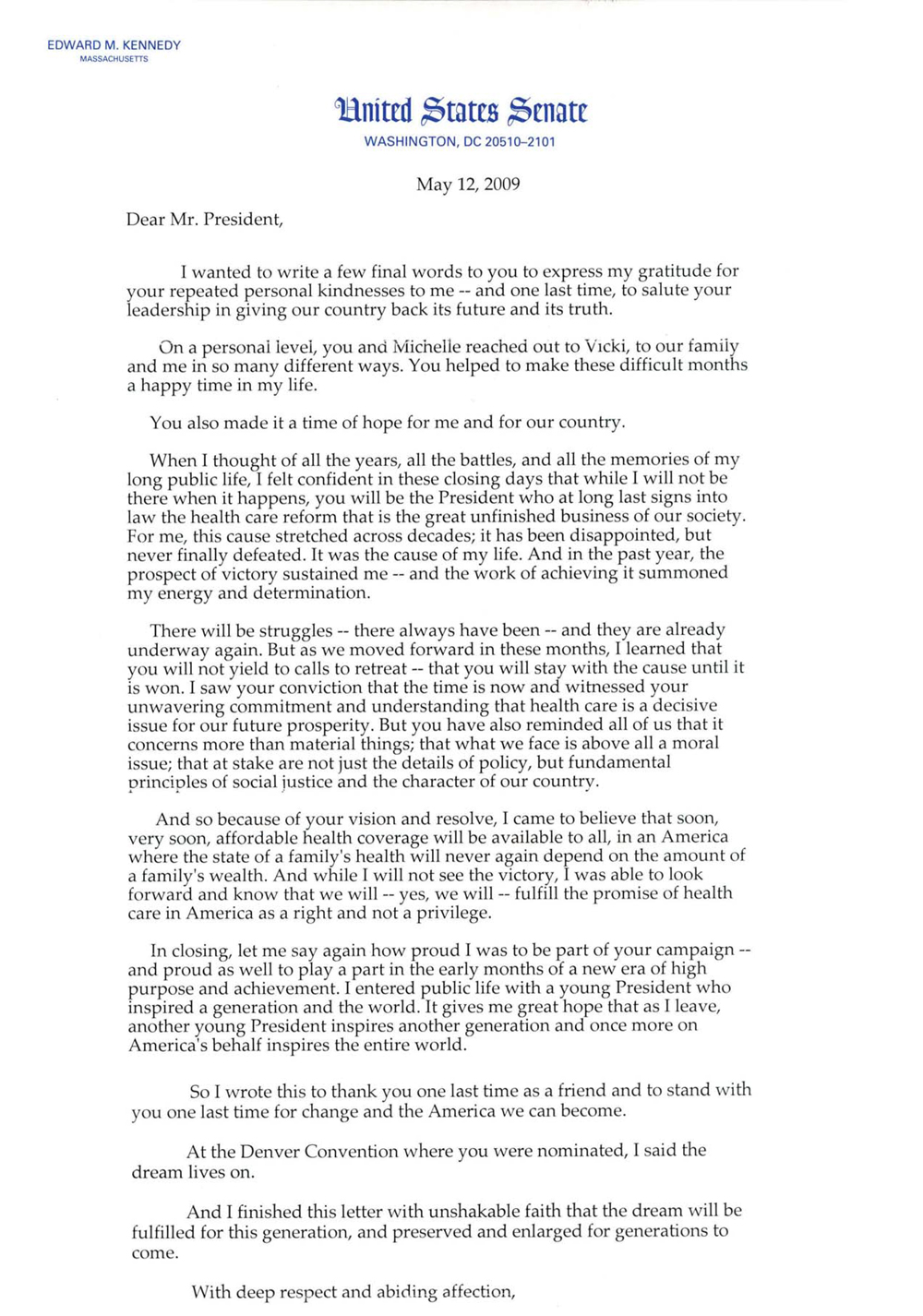
The groundwork was laid over nearly 100 years: Other administrations — from Presidents Truman to Nixon to Clinton — have tried and failed to immortalize this principal into American law.
Then, after nearly a century of work, an improbable piece of legislation with a lot of heart behind it ended its journey on the President's desk on March 23, 2010.
Since then, health reform in America has been the law of the land and after more than five years under this law 16.4 million Americans have gained health coverage. 129 million people who could have otherwise been denied or faced discrimination now have access to coverage. Health care prices have risen at the slowest rate in nearly 50 years. And it will live on as a legacy achievement not just of this administration, but of all those who fought for it for so many years.
Learn more about the details of President Obama's record on health care.Senator Ted Kennedy of Massachusetts, known fondly as the "Lion of the U.S. Senate," was a lifelong champion for health reform. He called it the cause of his life. As he endured brain cancer, he wrote this letter to the President, instructing his wife to send it after he passed away. This is what that letter said:

Health reform has had a profound day-to-day impact on tens of millions of Americans – no matter where they are in their lives. But what does that actually look like?
For millions of Americans, health reform has meant finally having access to the preventive services that will keep them — and their families — healthy for good. In the day-to-day, that means getting regular check ups and screenings. In the long run, it means safeguarding against chronic diseases like heart disease, cancer, and diabetes. (Learn about other preventive services here.)
That's a big deal.



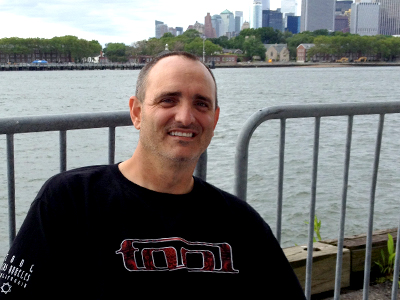

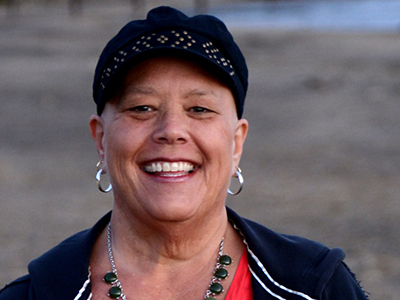





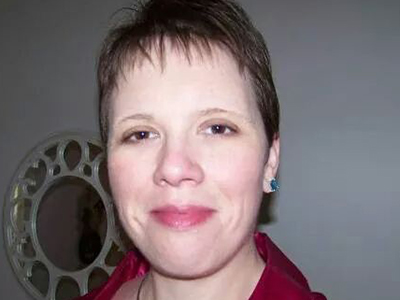



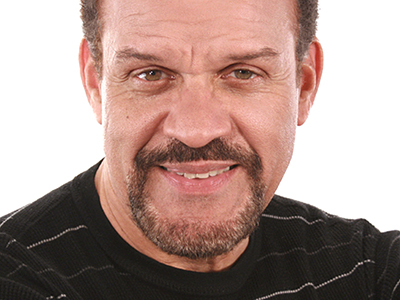








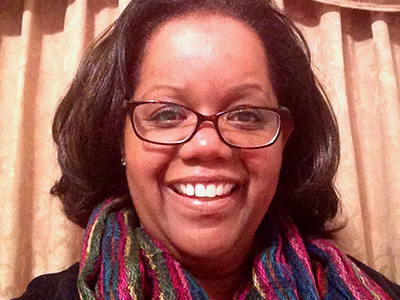


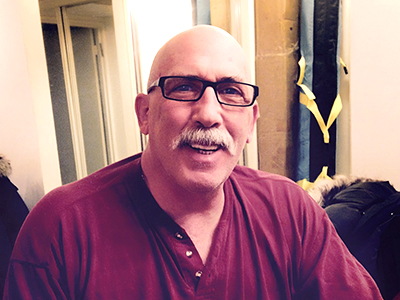




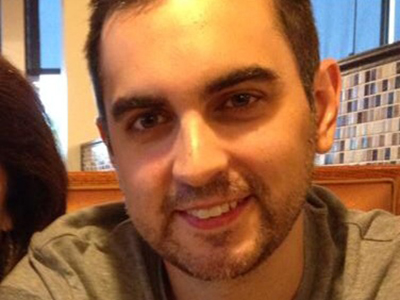




You told the President you're in —
now let your friends know, too.
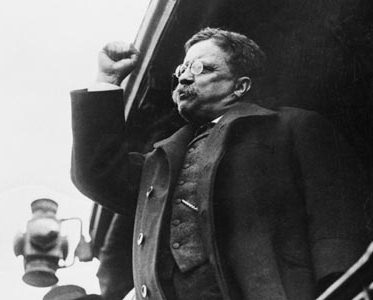 campaigns on national insurance." width="" height="" />
campaigns on national insurance." width="" height="" />
“There is also the problem of economic loss due to sickness—a very serious matter for many families with and without incomes, and therefore, an unfair burden upon the medical profession”
-President Franklin D. Roosevelt speaks on the need for a national health insurance program.
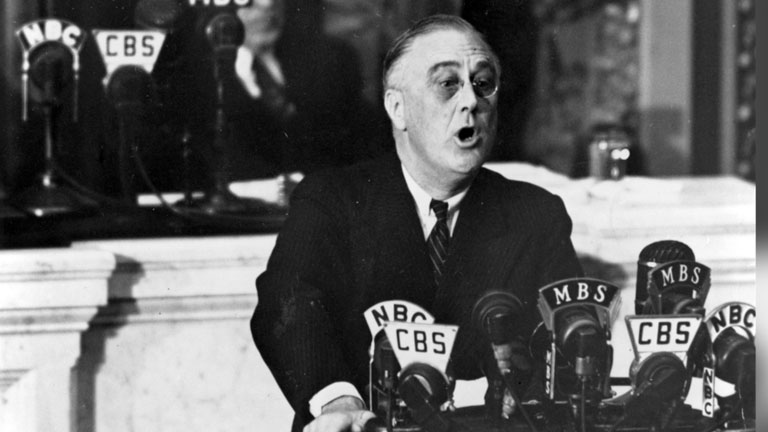
“Millions of our citizens do not now have a full measure of opportunity to achieve and enjoy good health. Millions do not now have protection or security against the economic effects of sickness. The time has arrived for action to help them attain that opportunity and that protection.”
-President Truman details his plan for health care reform.
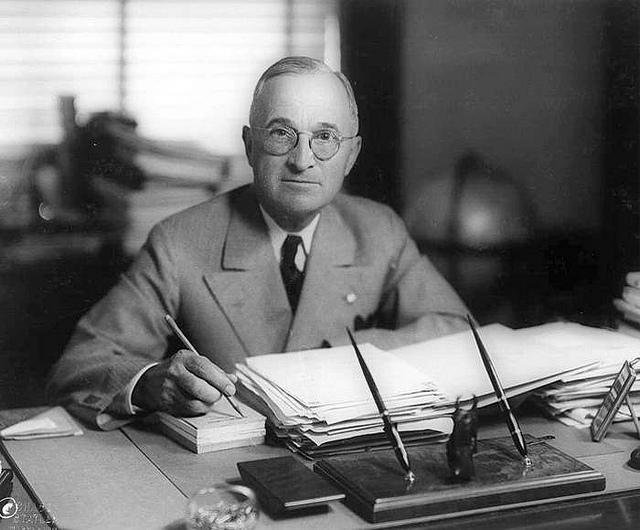
“Many of our fellow Americans cannot afford to pay the costs of medical care when it is needed, and they are not protected by adequate health insurance. Too frequently the local hospitals, clinics, or nursing homes required for the prevention, diagnosis and treatment of disease either do not exist or are badly out of date.”
-President Eisenhower notes the rising costs of health care — and the need to fix an outdated system.
“The health of our nation is a key to its future--to its economic vitality, to the morale and efficiency of its citizens, to our success in achieving our own goals and demonstrating to others the benefits of a free society. Ill health and its harsh consequences are not confined to any state or region, to any race, age, or sex or to any occupation or economic level. This is a matter of national concern.”
-President Kennedy calls for health insurance for the elderly and improvements to the health system.
“We can and we must strive now to assure the availability of and accessibility to the best health care for all Americans, regardless of age or geography or economic status.”
-President Johnson addresses Congress on the need to provide health coverage to the elderly, poor, and disabled.

Senator Ted Kennedy introduces the Health Security Act, calling for a national single-payer health care plan.
Mar. 2“Comprehensive health insurance is an idea whose time has come in America. There has long been a need to assure every American financial access to high quality health care. As medical costs go up, that need grows more pressing. Now, for the first time, we have not just the need but the will to get this job done.”
-President Nixon proposes a health insurance reform plan but it stalls in Congress.
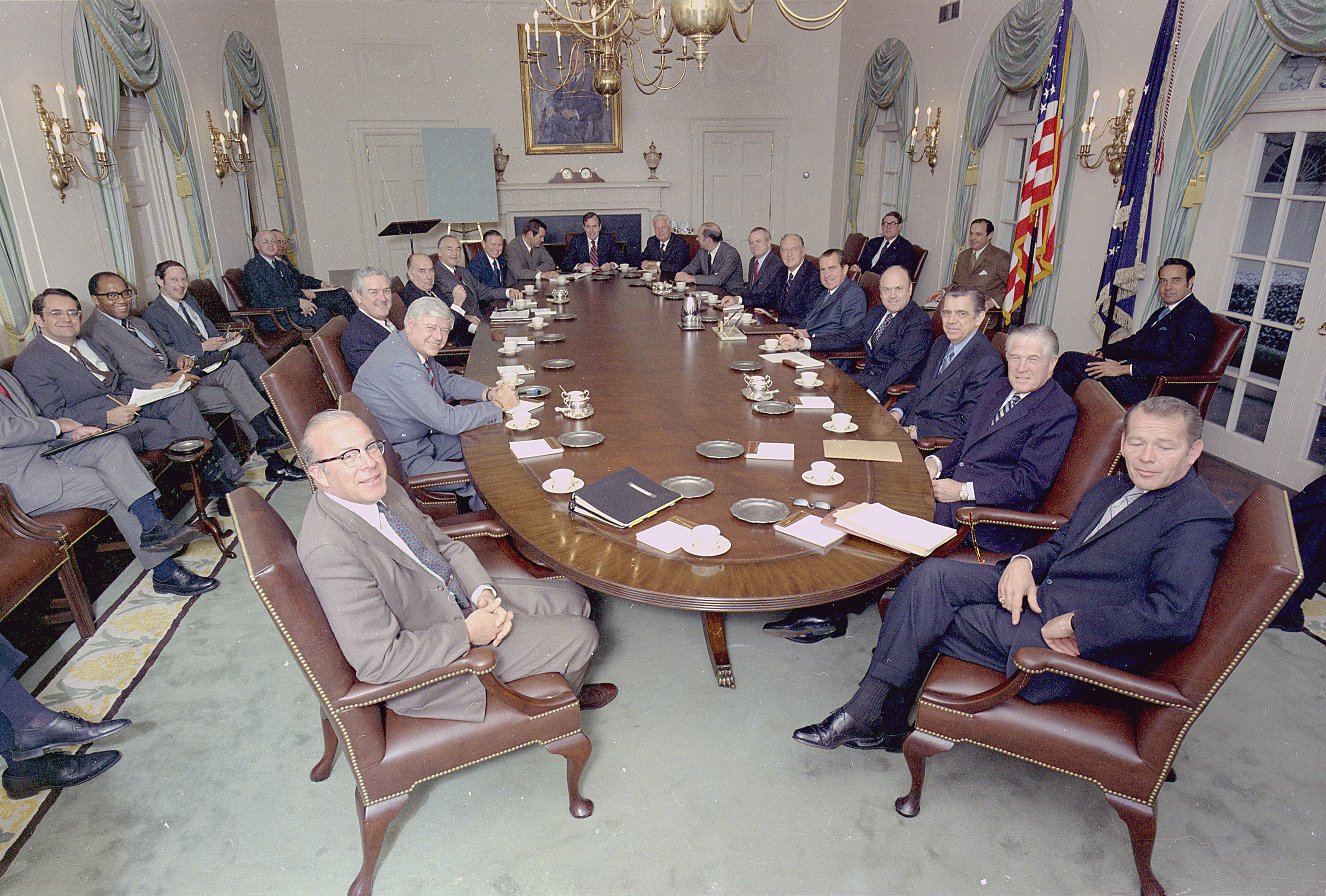
“As long as I'm a vote and as long as I have a voice in the U.S. senate, it's going to be for the Democratic platform plan that provides decent quality health care north and south, east and west, for all Americans as a matter of right and not of privilege.”
-Senator Kennedy continues a lifelong call for affordable health coverage.

“We simply cannot afford this. The cost of health care shows up not only in your family budget, but in the price of everything we buy and everything we sell. When health coverage for a fellow on the assembly line costs thousands of dollars, the cost goes into the product he makes. And you pay the bill.”
-President George H. W. Bush was among the presidents with serious concerns over rising health care costs.
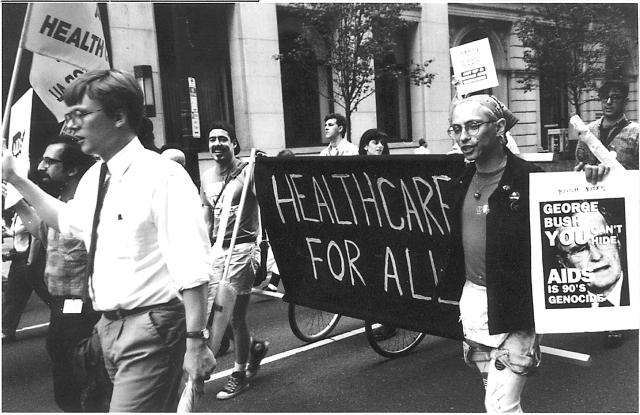
“At long last, after decades of false starts, we must make this our most urgent priority, giving every American health security, health care that can never be taken away, health care that is always there.”
-President Clinton proposes bold action to expand coverage, promote competition, and control costs.
“When the American people are on the march there is no barrier that can resist them, no obstacle that can block their path.”
-Senator Kennedy's Committee moves his Affordable Health Choices Act forward.
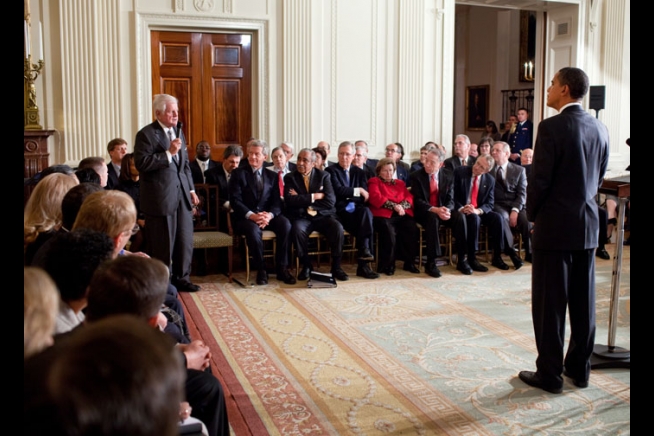
“I am not the first President to take up this cause, but I am determined to be the last. It has now been nearly a century since Theodore Roosevelt first called for health care reform. And ever since, nearly every President and Congress, whether Democrat or Republican, has attempted to meet this challenge in some way.”
-President Obama delivers a speech to a joint session of Congress.

“After nearly a century of trying… we are closer than ever to bringing more security to the lives of so many Americans. The approach we've taken would protect every American from the worst practices of the insurance industry. It would give small businesses and uninsured Americans a chance to choose an affordable health care plan in a competitive market. It would require every insurance plan to cover preventive care.”
-President Obama focus on health care reform in his first State of the Union address.
Congress passes its sweeping health reform bill and sends the legislation to the President for his signature.
Mar. 23“We have now just enshrined, as soon as I sign this bill, the core principle that everybody should have some basic security when it comes to their health care. And it is an extraordinary achievement that has happened because of all of you and all the advocates all across the country.”
-President Obama signs the Affordable Care Act into law.
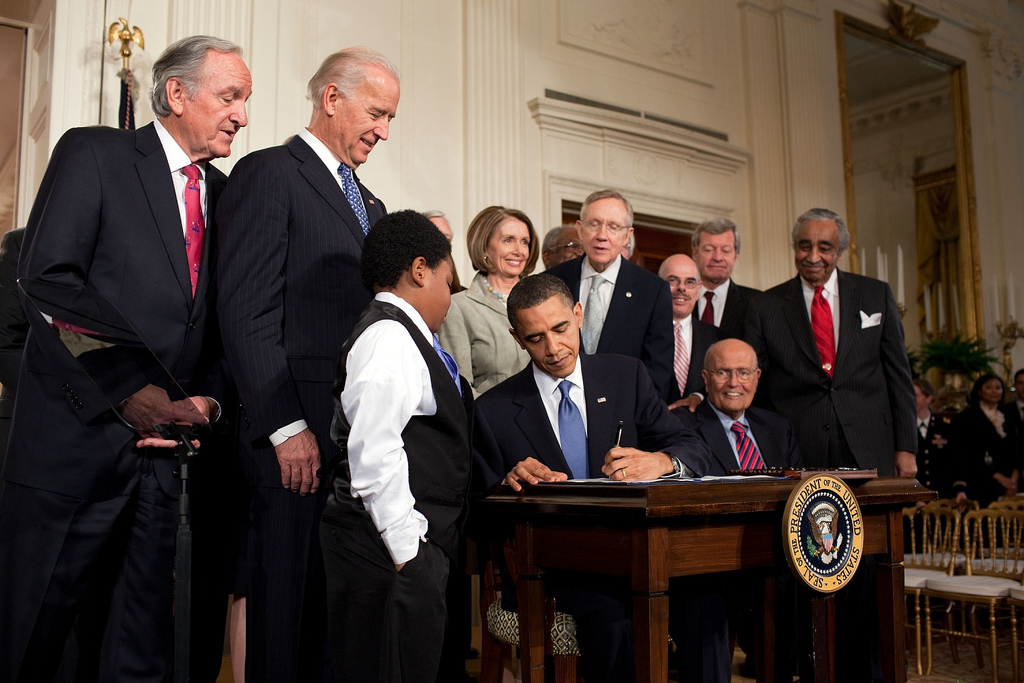
Uninsured Americans with pre-existing conditions now have access to coverage through the Pre-existing Condition Insurance Plan (PCIP).
Millions more Americans under 26 have gotten coverage through a parent’s plan since health reform went into effect.